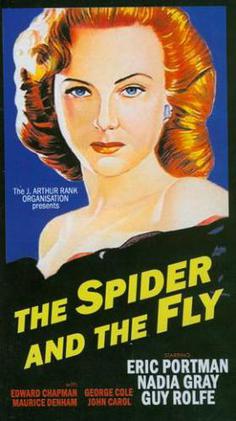Plot
In 1913, Fernand Maubert, the dedicated chief of police of Paris, is pursuing Philippe Ledocq, a suave bank robber suspected of a series of thefts, but the criminal always has an alibi. After the latest robbery, Maubert does capture Ledocq's accomplice, Madeleine Saincaise.
When she is released from prison, Maubert warns her to stay away from Ledocq (though he has a certain admiration for the man). Impressed by her intelligence, beauty and courage, he begins to court her himself. When Ledocq visits her, she professes her love for him, but he tells her that it is too dangerous for them to be seen together and that they would eventually tire of each other anyway. Later, however, during one of their cordial occasional meetings, Maubert tells Ledocq that he can tell that Madeleine is different from Ledocq's other women; she has got under his skin.
Later, the police are tipped off by an informant and arrive during an attempted theft. Ledocq gets away, but his assistant Jean Louis is killed, along with a policeman. Ledocq persuades Madeleine to provide him with an alibi. Maubert knows she is lying, but cannot prove it. However, he does stop seeing her.
Finally, Maubert gets the break he has been waiting for. Ledocq employs Jean Louis's brother Alfred for his next theft. Maubert gets Alfred to betray Ledocq, not out of revenge for his brother's death, but by telling him falsely that Ledocq did not give his mother Jean's fair share of the loot. Ledocq is imprisoned just as World War I breaks out.
During the war, Maubert becomes a major in French counterintelligence. When the Minister of War tells him that they urgently need a list of German spies in France being kept in a safe in the German embassy in neutral Bern, Switzerland, Maubert states there is only one man for the job. Maubert is authorized to offer a pardon to Ledocq in exchange for his services. The prisoner agrees after Maubert dangles the prospect of seeing Madeleine.
The theft goes off without a hitch. However, when Ledocq goes to Madeleine's flat, he finds a despondent Maubert already there. In a surprise twist, it turns out that Madeleine's name was on the list they stole. She is taken away, with the implication that she will be executed for treason. In the final scene, Maubert watches Ledocq, now an anonymous French soldier, board a train for the intense fighting at Verdun, both knowing that Ledocq stands little chance of survival.
Production
It was the first film from the producing team of Maxwell Setton and Aubrey Baring, who set up their operation at Mayflower Productions. Mayflower had been established by Charles Laughton and Eric Pommer in the 1930s and made three films but became dormant with the advent of World War Two. Setton and Baring decided to re-activate the company and the two men would make six movies together, most of which were written by Robert Westerby, who wrote The Spider and the Fly. Mayflower received a government grant to underwrite part of the cost. [5]
Robert Westerby's story was based on a true story which he had been told by a member of the French police. [6]
In October 1948 Alfred Hitchcock announced that he would make three films for Transatlantic Pictures after he finished Under Capricorn: I Confess, Dark Duty and The Spider and the Fly. [7]
The leads were Eric Portman, Nadia Gray and Guy Rolfe. It was Eric Portman's first film in over a year, during which time he enjoyed a great success on stage in a double bill of Terence Rattigan plays called Playbill. Nadia Gray was a Romanian actor who had spent part of the war in a German concentration camp; she was cast in the film partly due to her appearance on the Paris stage in a production of Noël Coward's Present Laughter (she was seen by Anthony Havelock-Allan who recommended her). [8] [9] It was Guy Rolfe's third leading role. [10]
Filming started in May 1949 and took place in Paris over three weeks, then at Pinewood Studios in London. [11] [12] Sets were by the art director Edward Carrick. The period costumes were designed partly by Elizabeth Haffenden. [13] It was Seth Holt's first film as lead editor, although he had worked as an assistant for a number of years. [14]
This page is based on this
Wikipedia article Text is available under the
CC BY-SA 4.0 license; additional terms may apply.
Images, videos and audio are available under their respective licenses.
